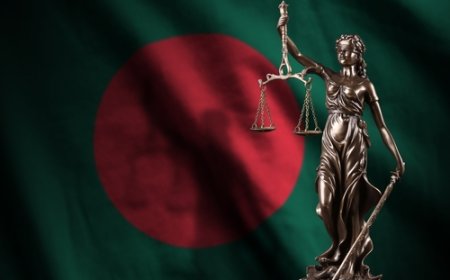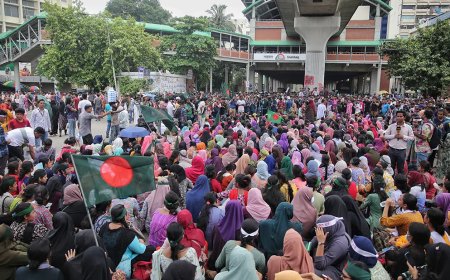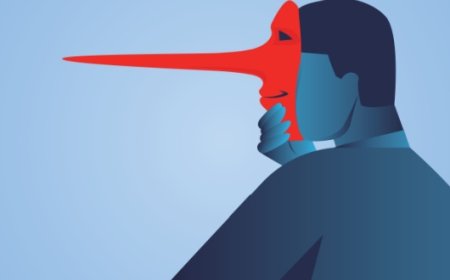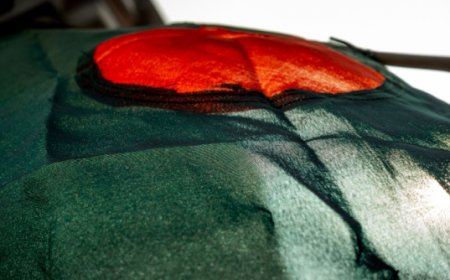August 3: The Gulshan Protest
A sit-in of professionals transforms to a spontaneous mass protest
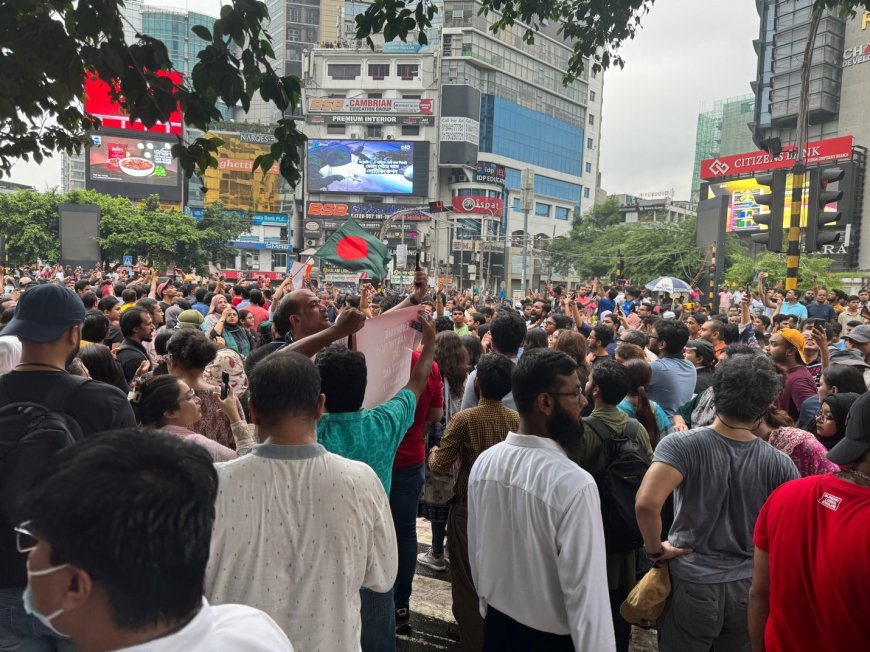
About a thousand professionals and youth gathered on a peaceful sit-in protest in Gulshan Shahabuddin Park on Saturday, August 3, 2024. It was 3:00pm Dhaka time.
The protest eventually erupted to a march of nearly 5,000-7,000 people in the Gulshan Avenue. The slogans shifted from "We want justice" to "Step down Hasina."
A sit-in of the development professionals working on economic and social development of Bangladesh, turned to a spontaneous mass protest.
The sit in was planned for the development professionals of Bangladesh under the banner "Professionals’ Alliance for Freedom and Justice." The alliance represented professionals who were working for different local and international NGOs, multilateral and bilateral aid agencies, private sector, government agencies and the academia. The alliance was formed out of the Facebook group DSDE, a platform of the development professionals in Bangladesh which currently hosts around 43,000 members.
As I look back on how posts in Facebook turned to sit-in protest and how a sit-in protest turned to a mass protest, I realize that the power of a movement that unfolded last July relies in the collective power of common people and how they associate with the call.
I founded the group DSDE in 2017 to bring together the development professionals working in Bangladesh. It eventually became perhaps the world’s largest forum of professionals working on socio-economic issues, governance, and justice, among others. The group is mostly self-managed and self-censored with some facilitation and nudges from the moderators. The group is a vibrant platform for job seekers and recruiters. It runs with the motto of "Connect, Converse."
People discuss the intricate issues of development and try to solve the deepest challenges with discussion and dialogue. As such, it was self-defeating if the group decided to remain silent when the core tenets of governance, peace, democracy and human rights were being breached by the government in July 2024.
At the least, I was worried that the group would break into confrontation. The situation was still fluid. People were still openly confronting each other in social media. There was a risk that we would fail to moderate the discussion.
But eventually, one member showed up with the necessary courage. The first call came from Zohan Abdullah Al-Mahmud who posted anonymously on July 17, just before the internet shut-down. He wrote in a very sharp tone
“Dear DSDE, I know we all try to stay nonpartisan in such crisis times of the nation and we did it so many times previously - I confirm. Why do we do it? Our donors will get angry if we talk against such brutality? Or partners will consider us as biased or political if we talk for the reform of the state's treatment? We do not want to upset the government, but then what is the point of all that CSOs working for good governance and all other hundreds of human rights? How can we stay silent when our students, volunteers get blatantly tortured? How about women?
What is development to you all? Working in an air-conditioned room talking about the reform and drafting a policy paper that no one reads?”
The post made me hopeful of beginning at least a conversation and I wrote in response:
“Thank you so much! Finally, we have a post to initiate a discussion. I wish you did not have to go anonymous! There should have been discussion on this very forum on what is the quota reform, why should it stay or not, the need for quota for minorities, what was the high court verdict and how does it affect quota! But there has been no such until this one! So, like you, I am also tempted and interested to ask, what is the fear about in discussion? If we are not here to discuss and debate what is of paramount interest for the country’s inclusive development agenda, then why are we here for? The admins and moderators of the group, have a tremendous responsibility to ensure that the group remains out of any hate speech and any act that can be termed as agenda manipulation. But I am fully in support of discussion that helps us to resolve this crisis meaningfully and for the betterment of our country.”
The post and the discussion broke the barrier and the silence in the forum on the issue. The discussion, however, did not gather pace as the government imposed the internet black-out. I resorted to SMS messages to convene the seniors in the field of development practice. But the series of attempts to meet failed due to curfew and security concerns.
When the internet was back and the country was erupting to protests, we received a post from Shihab Quader, now the Director General of Sustainable Development Goals (SDG) at the Chief Advisor’s Office. Shihab simply asked: "Can we hold a public demonstration as development professionals for justice just like our lawyers, poets and musicians did?"
Shihab posted on July 30. It took us just three days then to organize the Gulshan sit-in on August 3. This shows how eager and hungry the people had become by that time to come out into the streets in solidarity with the movement. It was clear by then that the students’ call had become the nation’s call.
We first decided to organize a closed group sit-in in Gulshan 2 Shahabuddin Park. Our idea was to keep it confined to the professionals working on the development issues in Bangladesh. However, we decided to go under the banner "Professionals’ Alliance for Freedom and Justice." We found it as the common identity among us.
Halima Sadia took the lead in bringing together the team. She created a volunteer group in a flash which also included Prapti Tapashi, one of the front-line activists during the July revolution. Tasmiah Rahman, Warda Ashraf, Dr Shazzat Rahat Hossain, aka Shazzat Udash, and Tony Michael came forward to give a structure and plan to the program. There were volunteers like Sara Noor and Katha, who worked overnight to monitor the progress of the activities. I was at the time briefly out of country on a work mission but planned to come back by midnight of August 2. We chalked out all the details on WhatsApp while I wrote and shared our declaration and slogans and posted them in the group for the members’ validation.
Shazzat Udash who holds many identities (a teacher, physician, a sports commentator, a musician, and a development professional) came up with a list of slogans that were transformed to posters overnight by Mahmud and his team. Mahmud runs a creative agency Creato and his team volunteered to design and print the posters. These posters I believe provide historical accounts of the demand, the emotion and the inspiration for change.
While the team continued to work overnight, I was tasked to draft our statement. Tanjim Ferdous from The Daily Star brushed up my draft and the statement was ready for circulation. While thinking of the actual programme, I also felt the need for a few slogans that we could read out with our official statement. One of them was the call: জুলাই মাসের অঙ্গীকার, রাষ্ট্র নীতির সংস্কার (Our Promise for July: Reform of State Affairs).
Sabbir Hossain made the first draft of the press release, Halima made some last-minute edits, and Tanjim brushed it up for the final go. The call for reform was clear and loud in the discussions that ensued. Members asked that we clearly state that we stand for systemic reforms in our constitution to ensure people’s right to speak and vote.
The announcement of a peaceful sit-in attracted criticism within our Facebook group. Some called it a photo opportunity. Some called it tokenism. As the lead of the group, I felt a fair share of burden, a fair share of confusion. I could not incite and trigger a violent protest. Many in the group who expressed solidarity to join worked in international organizations. Their contracts did not allow them to participate or speak in such events. We wanted to give them the space they needed to show up.
While the debate continued, someone notified that the student leaders also called for a protest in the Shaheed Minar with the demand "Step Down, Hasina." As now the two events coincided, some said we should call our event off. Some even said, ours was a plot to stop people from going to the Shaheed Minar.
We decided to move ahead as we saw no conflict and we were clear about our intention, that we wanted to give the development professionals a platform to show up in solidarity. The rest -- the protesters could decide.
As I headed back to Dhaka, indeed as I was boarding my flight, the team sent a message saying many from the Gulshan, Banani and Baridhara area wanted to join the program. As the sit-in was called to express solidarity with the movement by the development professionals, our team was confused whether it should become a public event. We briefly discussed and we felt that the event should be made public.
As such, what was originally planned to be an event of the development professionals, became an event of the mass. Tasmiah, a versatile leader in the field of skills development and the co-founder of DSDE, and Warda, a feminist activist and a musician took the lead in speaking with the Shahabuddin Park authority and secured permission for an hour long sit-in. Tasmiah and Warda were the glue in bringing all the messy pieces together. Tony Michael, a development communication expert and a virtuoso, provided leadership to our young volunteers as they worked the whole night on August 2 to prepare the logistics for the event.
On August 3 morning, The Front Page, a micro-news channel, posted a photo card on the sit-in with the time and venue and the event became viral. At around 11 am, I received a screen shot of a message from the US Embassy which was also posted on their social media page. The message called for caution among the foreigners as sit-in was planned in the Shahabuddin Park. It was by then clear that the event became bigger than what we originally envisioned it to be.
The road to Shahabuddin Park from my home had a blockade. Mahmud was already in the venue by 2:00pm. My wife and I reached soon. All our volunteers soon arrived and I saw a small group of people entering the venue from all sides. Some had their own banners. To others, we handed the banners we printed.
Soon, the park became flooded. I saw common faces, professionals representing not only the development sector, but also the private sector. There was a subdued anger in the face of all the people. Around a thousand gathered along with the media and the stage was set. Our youngest volunteer Katha made a last-minute cameo to charge the mic. We never actually thought it would become so big that we would need a mic to read out our statement.
Our event started with all singing the national anthem which was then followed by the official read-out of our statement. I was struggling to operate the mic. I wanted to read the official statement as loud as I could but the crowd could barely hear. Our beloved Tony da managed to operate the mic and he held onto it while I read on behalf of our group:
‘We, the professionals working on human rights and justice, economic empowerment and inclusion, and in building an equitable and just society in Bangladesh, express our deepest concern on the fatal use of power to suppress student’s and people’s voices. We are deeply shocked by the deaths and injury of our children, students, and common people. We strongly protest violations of UN’s declaration of human rights by the government. We believe, censorship on free speech, attack and abuse on alternative views have brought us to the current state where there is deep fraction between people and the government; we express full solidarity with the students. We cannot build a prosperous Bangladesh amidst fear. We demand justice. We demand freedom to speak. We demand right to protest. We remain determined as ever to work for freedom and justice.’
As I finished reading out the statement, some from the crowd began to chant "Step down Hasina." It was at that point I saw a small group almost running towards the gate with their banner: "Step-down Hasina," they chanted. I was still inside the park speaking to the press when I saw almost everyone from the park walking fast towards Gulshan. "A huge protest is forming outside the park," I was told.
My wife and I caught up to the protest with a small rickshaw ride, and there it was. That small event that we planned somehow became a mega-protest of the elite Gulshan residents, but also the salespersons, restaurant chefs and waiters, and others who work around Gulshan.
People were waving from the high floors. People came rushing from all corners. Our volunteers quickly pivoted to support the protest march to proceed without fully obstructing the traffic. It went on with a frenzy for almost an hour and took turn across the Gulshan Avenue.
While I was drafting this memoir, I was at an event where this young lad came to shake my hand and said “Bhaiya do you remember August 3. I am Ashraf Hossain Sachin. I was the one who ran with the banner with my friends towards Gulshan 2 circle.” At the same event, another of his friends came. He too shook my hand and said: “Bhaiya, there was this aunty who said, should we not shout out some slogans? Should we not be in the street? This event feels incomplete.”
I realized once again, that it was not just you or me or them. It was all of us. In that protest, I was just another person. All of us who worked in organizing the sit-in were just a few who thought we had a moral responsibility to show up.
But that Gulshan protest was people’s march. It was organic. It was spontaneous. It might have started from our sit-in. But we had no credit for it. As I walked with thousands of others, I realized, a movement such as this never happens as a result of careful planning.
One thing led to the other. It was more like people responding to their individual calling. That individual calling became a collective calling. I realized that it takes decades for an event as such to happen.
At that point, my only wish was that this beautiful movement went on for a better Bangladesh. I barely had any vision that Hasina would be stepping down in just about 36 hours from then.
Md. Rubaiyath Sarwar is the Managing Director, Innovision Consulting, Founder of DSDE, and a member of the Bangladesh Research Analysis and Information Network. This essay will be published in a book on diaspora and citizens’ activism during the July Uprising.
What's Your Reaction?







